I. The Food Industry Has Higher Requirements for Casters
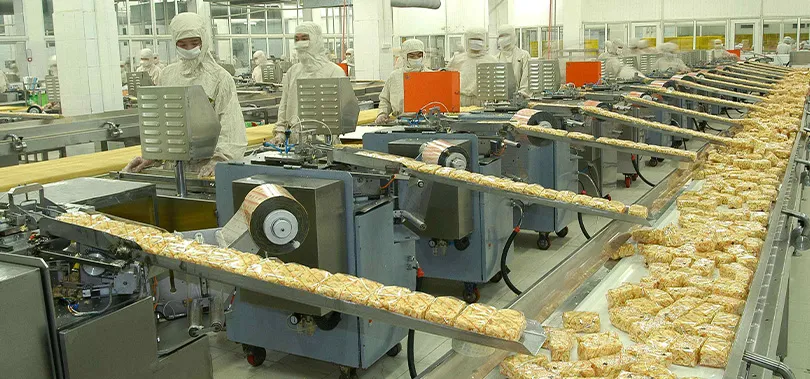
In the dynamic realm of food production, the importance of seamless and efficient transportation within the facilities cannot be overstated. The choice of casters – those small, often unnoticed wheels attached to the bottom of carts and trolleys – plays a pivotal role in this process. Selecting the appropriate casters not only alleviates labor strain but also boosts the efficiency of material handling. This guide delves into the critical considerations for choosing the best casters for the food industry, addressing common issues, and introducing the types of casters best suited for various applications.
II.Common Caster Issues in Food Workshops
- Insufficient Load Capacity: A frequent issue is casters failing to support the weight they carry, resulting in difficult maneuverability and potential safety hazards.
- Rust and Breakage of Caster Frames: In the damp and varied environments of food production, casters are prone to rust and breakage, posing threats to both efficiency and safety.
- Malfunction in Cold Environments: Casters used in cold storage often face the issue of bearings seizing up, hindering movement.
- Inadequate Heat Resistance: Casters exposed to high temperatures, particularly in baking and cooking areas, often deform, necessitating frequent replacements.
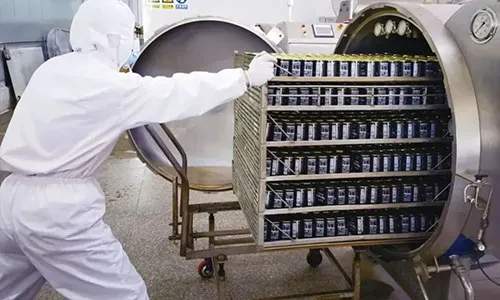
III. Common Casters in Food Production
1. TPR (Thermoplastic Rubber Casters):
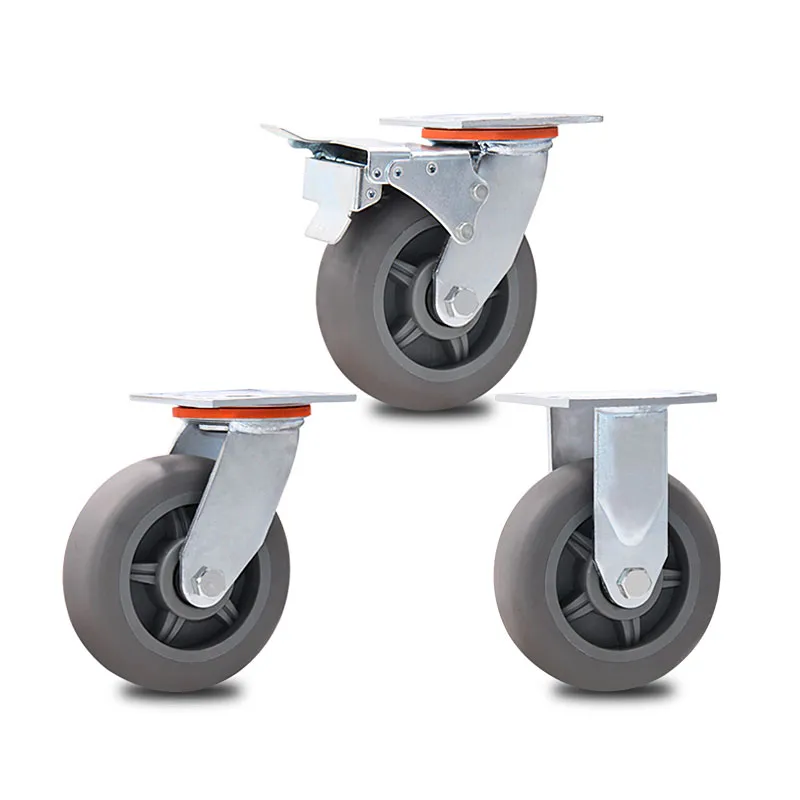
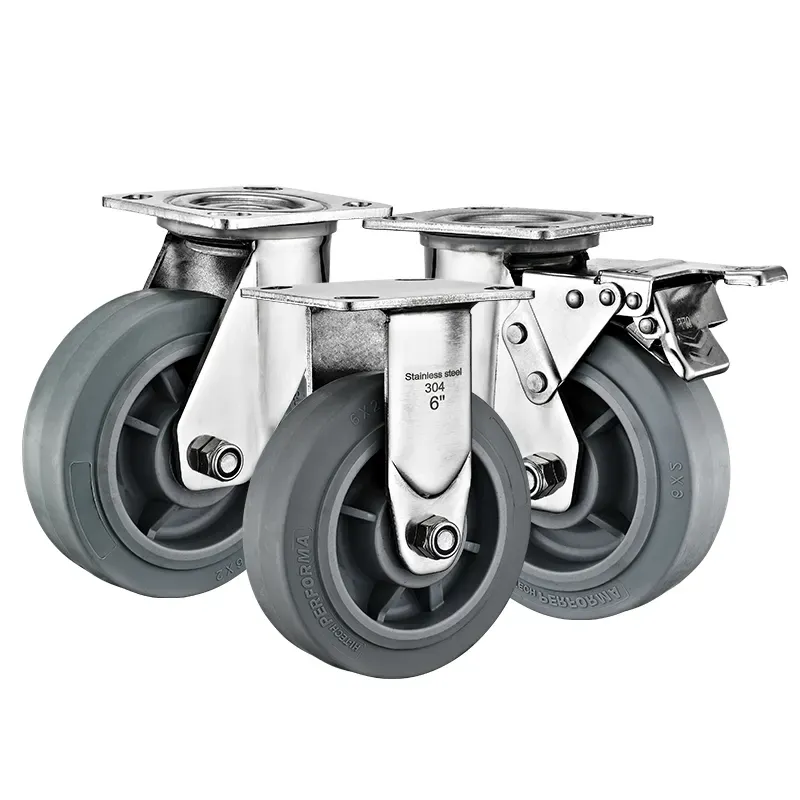
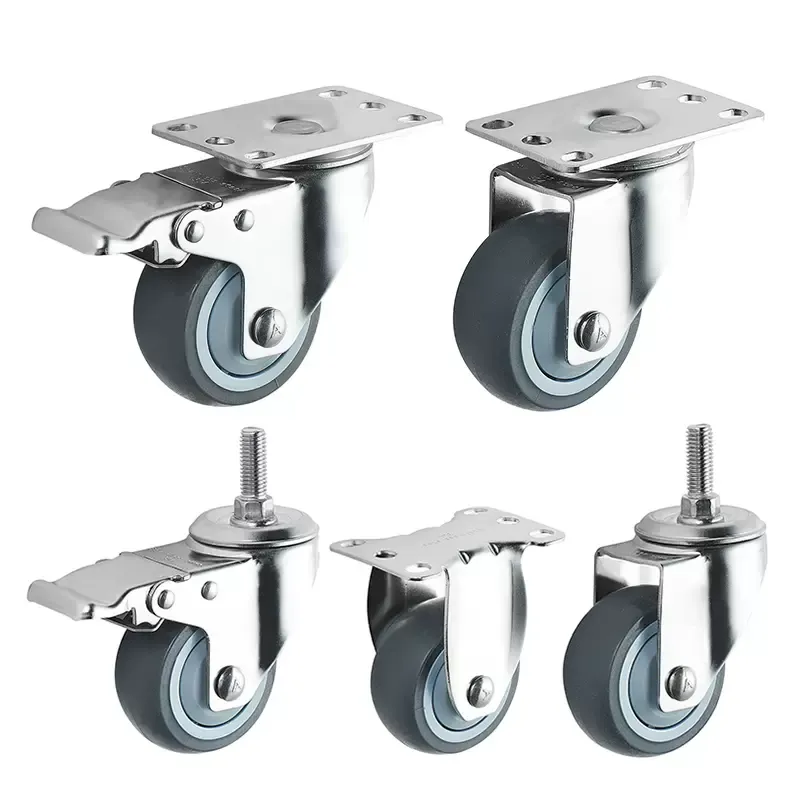
- Преимущества: TPR casters offer aesthetic appeal and a soft touch, making them ideal for environments where noise reduction and floor protection are priorities. These casters are UV and ozone-resistant, non-marking, and environmentally friendly. Their safety and non-toxic nature make them suitable for various applications.
- Applications: Extensively used in the medical and academic sectors, as well as in electronic and electrical equipment industries. They are also popular in supermarket carts and upscale hand trucks. These casters perform well in a broad temperature range, from -50 to 70°C, making them versatile for indoor and outdoor use.
2. PU (Polyurethane Casters):
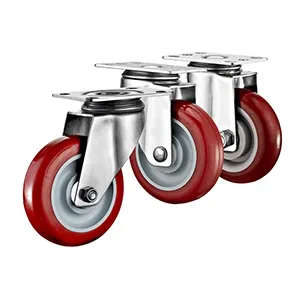
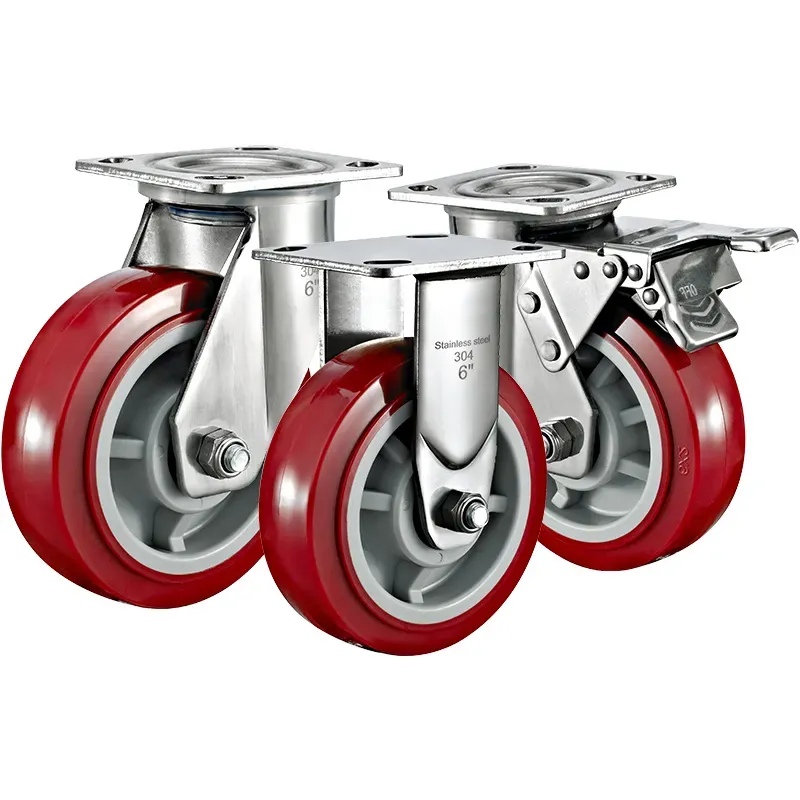
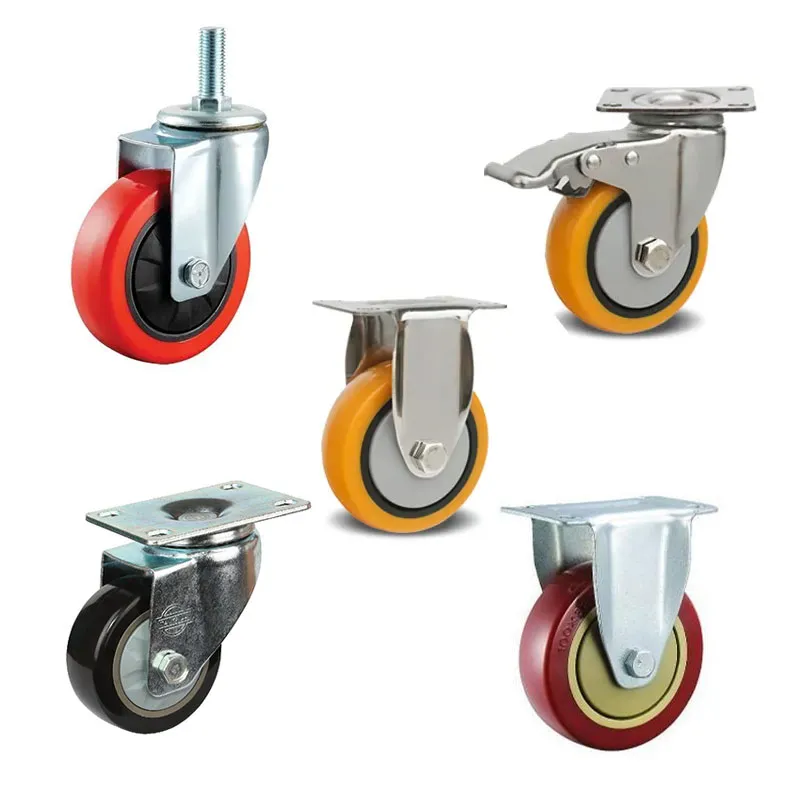
- Преимущества: Known for their durability, PU casters resist wear and chemical corrosion. They possess high strength and elasticity, making them ideal for heavy-duty applications. Their low-pressure resistance, strong shock absorption, and tear resistance are noteworthy, as is their capability to function quietly.
- Applications: These casters are a perfect match for the demanding environments of food processing, factory handling, warehousing logistics, and machinery manufacturing. With a temperature tolerance between -35 to 80°C, they adapt well to varying conditions.
3. PA (Nylon Casters):
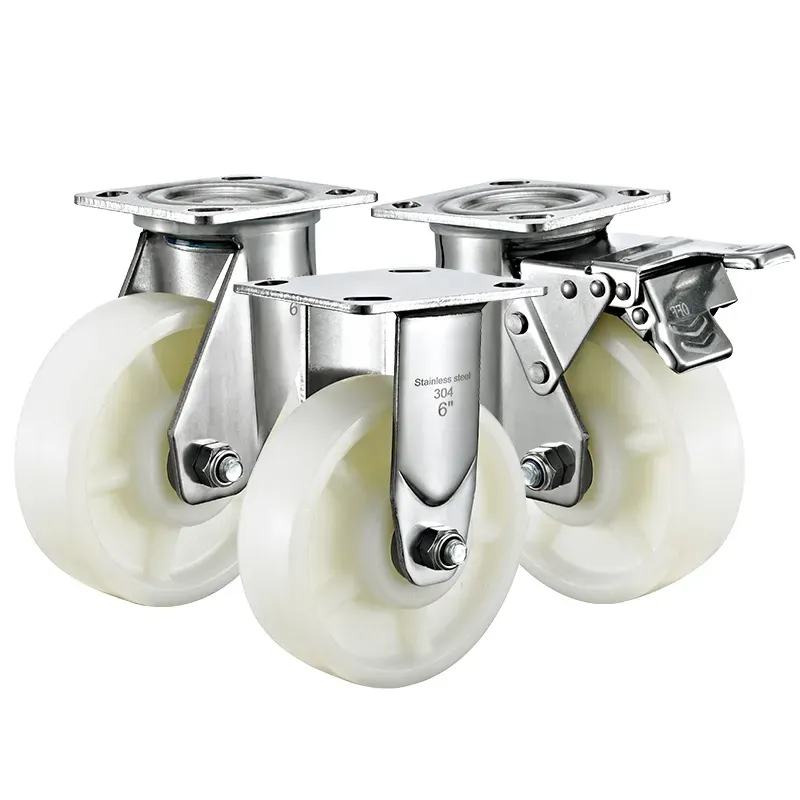
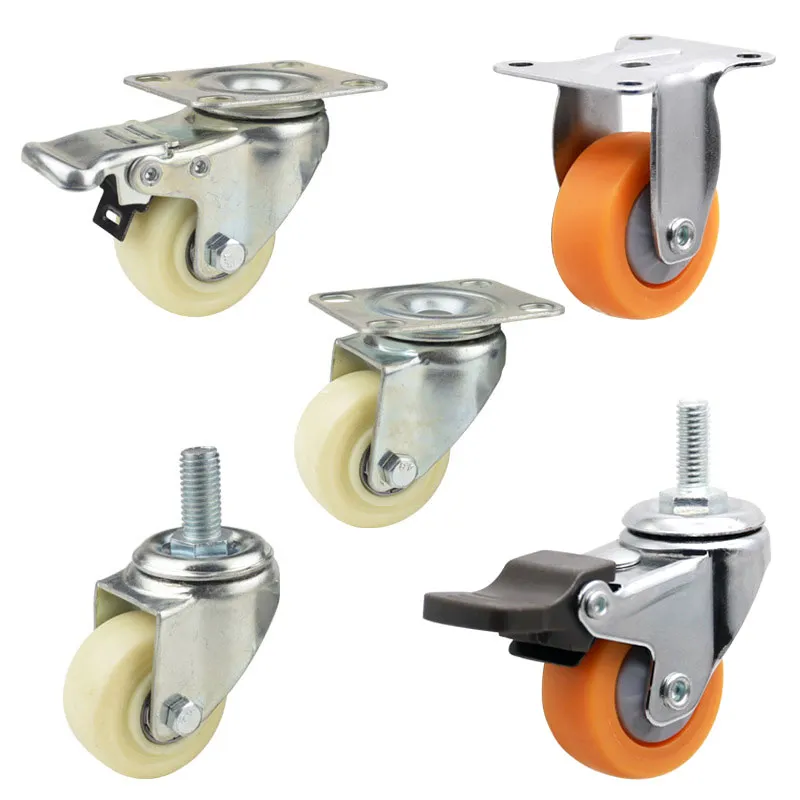
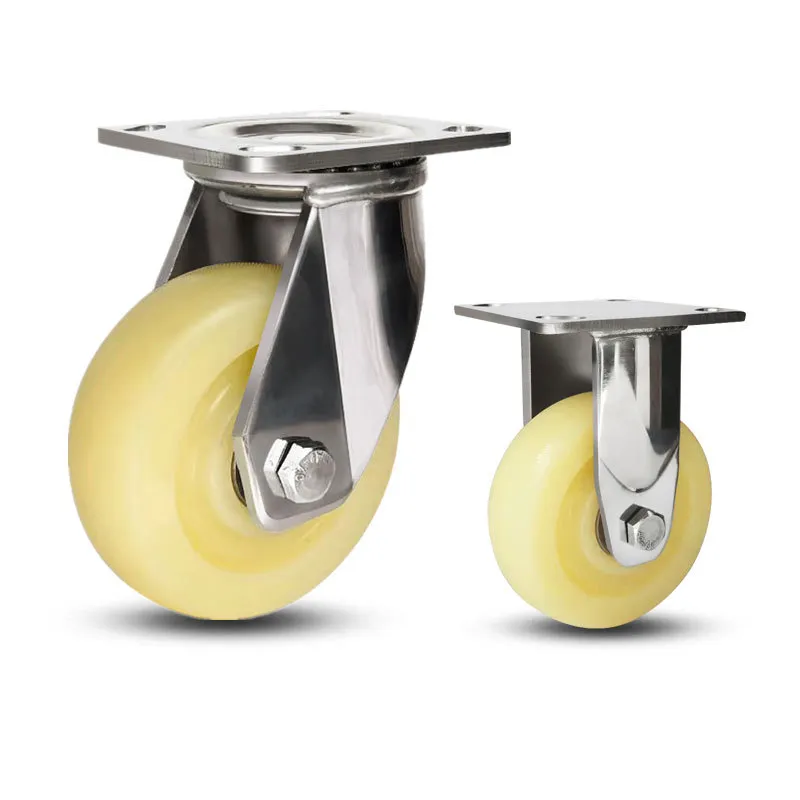
- Преимущества: Nylon casters stand out for their high mechanical strength, toughness, and resistance to tensile, compressive, and impact forces. Their heat-resistant nature and smooth surface minimize friction and wear, contributing to lower noise output. These casters are also resistant to corrosion, alkalis, salts, and weak acids. Their non-toxic, odorless nature and excellent antibacterial properties make them particularly suitable for food-related applications.
- Applications: These casters are widely used in factory handling, warehousing logistics, machinery manufacturing, and the food processing industry. They are suitable for temperatures ranging from -35 to 100°C.
4. High-Temperature Phenolic Wheels:
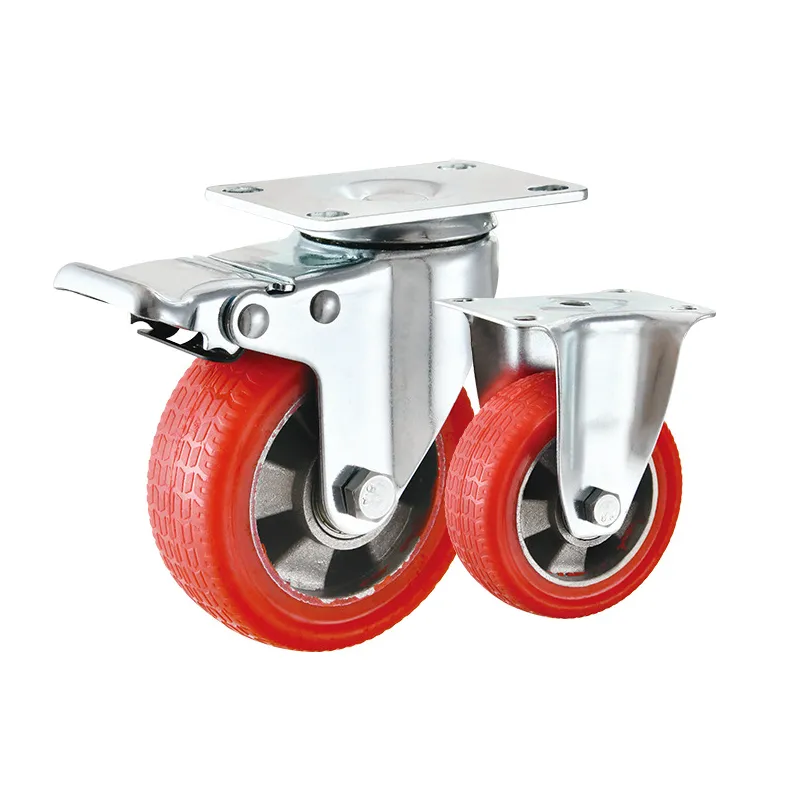
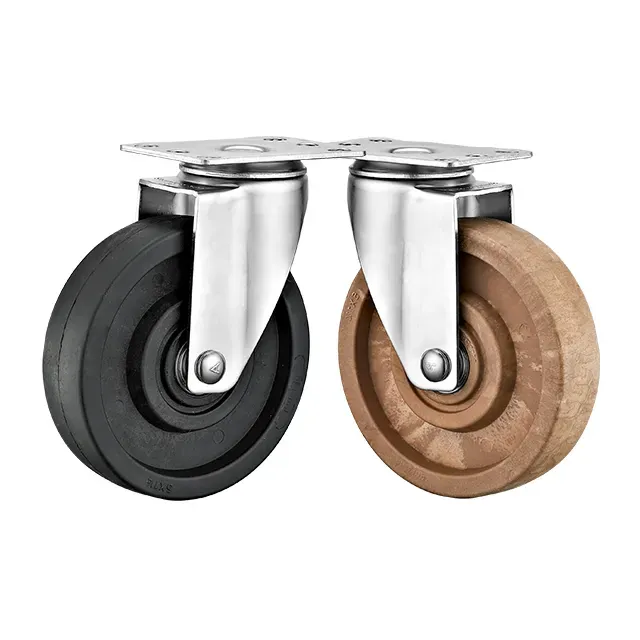
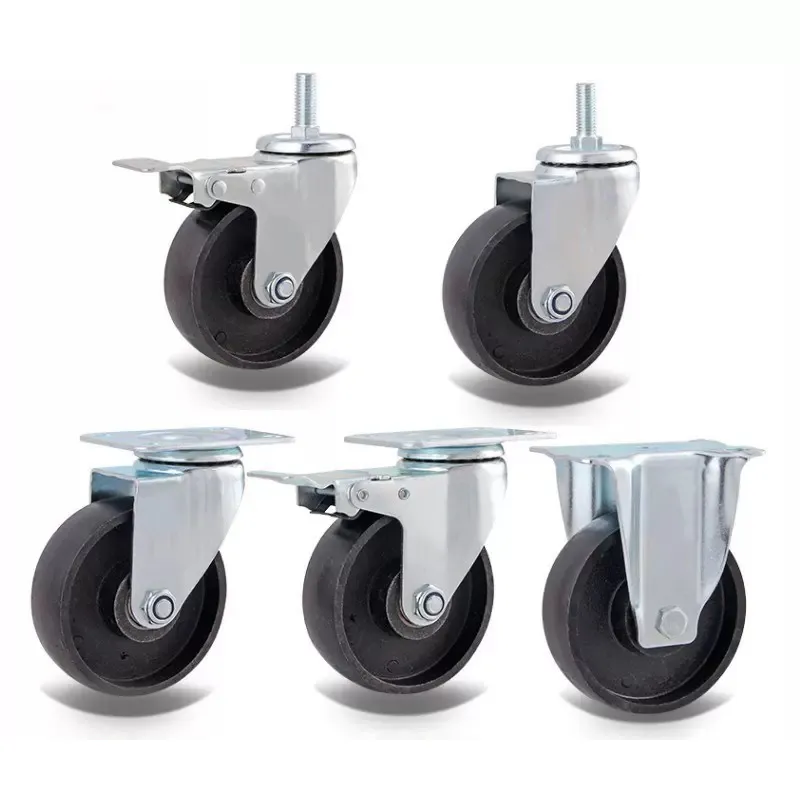
- Features: These wheels are capable of withstanding temperatures as high as 280°C, making them perfect for baking enterprises that require direct insertion into ovens.
5. 304 Stainless Steel Wheels:
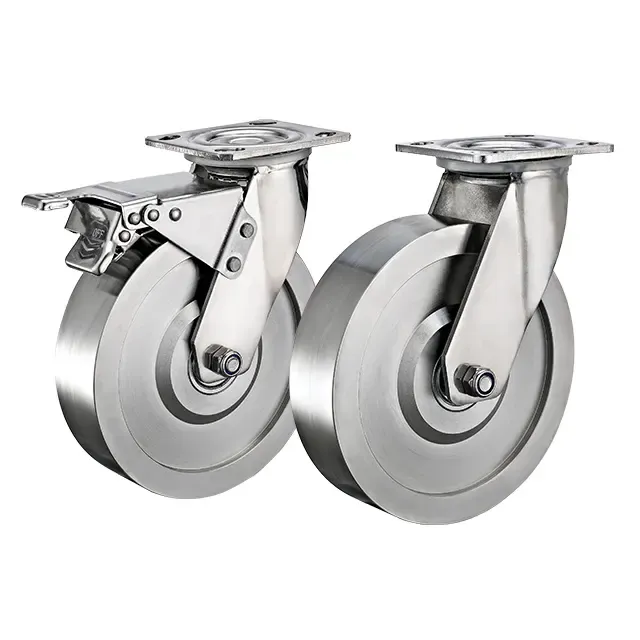
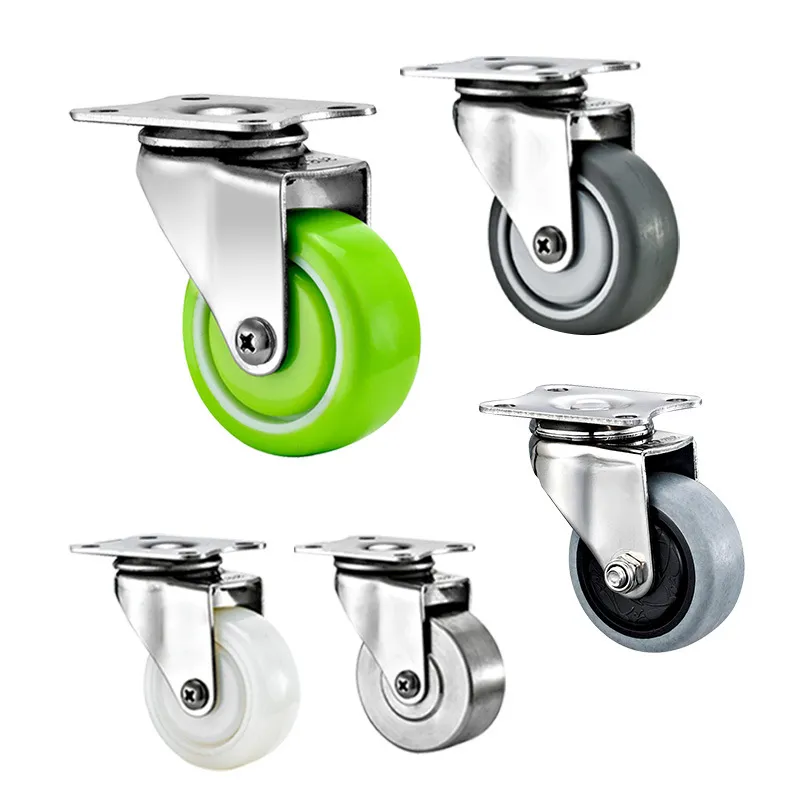
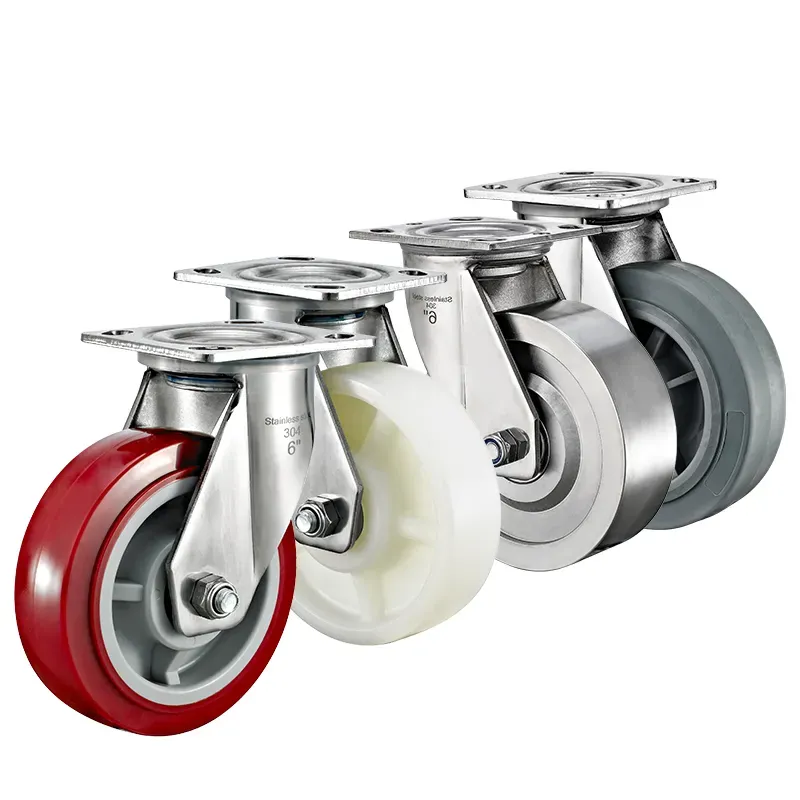
- Преимущества: A one-time investment in these wheels reaps long-term benefits. Their durability, resistance to rust, and ease of cleaning make them a cost-effective and hygienic option for the food industry.
IV. Reducing Caster Wear in Food Workshops
- Avoid Overloading: The key to prolonging caster life is to avoid overloading. Selecting casters with the appropriate load capacity is essential. Education on material weight estimation and the use of casters with a load capacity at least 1.5 times greater than the weight of the load is crucial for staff. It is also vital to avoid the common practice of overloading to reduce transportation trips, which can lead to premature wear and potential accidents.
- Selecting Material Based on Usage: The choice of caster material should be based on its physical and chemical properties, tailored to specific environmental conditions. For instance, nylon casters are recommended for environments with frequent cold storage access, and non-bearing casters (without steel balls) are preferable to ensure better freeze resistance.
- Regular Maintenance: Maintenance is critical for caster longevity. This involves regular lubrication of the caster’s moving parts, cleaning materials wrapped around the casters, and using rust-resistant materials like 304 stainless steel for maintenance and longevity.
V. In-Depth Look at Caster Selection
- Assessing Floor Conditions: The type of flooring in the facility can significantly influence caster choice. For smooth, even floors, softer wheels like TPR can be ideal, whereas harder, more durable wheels like nylon may be better suited for rough or uneven surfaces.
- Weight Considerations: Understanding the typical load each caster will need to support is crucial. This includes the weight of the cart or trolley itself, plus the maximum load it’s expected to carry.
- Temperature and Environmental Factors: In food processing environments, casters may be exposed to extreme temperatures, moisture, and various chemicals. Selecting casters that can withstand these conditions is essential for ensuring their longevity and proper functioning.
VI. Conclusion
While often overlooked, casters play a crucial role in the efficiency and safety of food industry operations. The right selection and maintenance of these small but critical components can lead to significant improvements in workflow and a reduction in maintenance costs.
В Булкастер, we understand the intricacies of caster technology and its application in the food industry. Our expertise in producing and customizing high-quality casters, combined with our commitment to providing tailored solutions and consultation, makes us a premier choice for your caster needs. We invite B2B clients to связаться с нами for inquiries and to explore our robust, efficient caster solutions.


